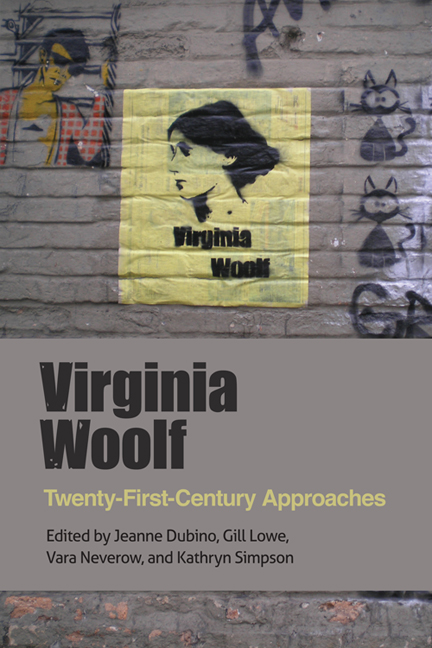Book contents
- Frontmatter
- Contents
- Acknowledgements
- Contributors
- Abbreviations
- Introduction
- PART ONE Self and Identity
- PART TWO Language and Translation
- 3 ‘Can I Help You?’: Virginia Woolf, Viola Tree, and the Hogarth Press
- 4 Bilinguals and Bioptics: Virginia Woolf and the Outlandishness of Translation
- PART THREE Culture and Commodification
- PART FOUR Human, Animal, and Nonhuman
- PART FIVE Genders, Sexualities, and Multiplicities
- Index
3 - ‘Can I Help You?’: Virginia Woolf, Viola Tree, and the Hogarth Press
from PART TWO - Language and Translation
Published online by Cambridge University Press: 05 August 2016
- Frontmatter
- Contents
- Acknowledgements
- Contributors
- Abbreviations
- Introduction
- PART ONE Self and Identity
- PART TWO Language and Translation
- 3 ‘Can I Help You?’: Virginia Woolf, Viola Tree, and the Hogarth Press
- 4 Bilinguals and Bioptics: Virginia Woolf and the Outlandishness of Translation
- PART THREE Culture and Commodification
- PART FOUR Human, Animal, and Nonhuman
- PART FIVE Genders, Sexualities, and Multiplicities
- Index
Summary
In the turbulent mid-1960s, John Lennon and Paul McCartney wrote a personal cry for ‘Help!’, the title song for both movie and soundtrack album. Suddenly famous, the Beatles confronted lives transformed in a variety of ways. Had they written a line like ‘Help me if you can’ during the 1930s, an advice column called ‘Can I Help You?’ in London's Sunday Dispatch might have echoed reassuringly. For eight years, actress and writer Viola Tree (1884–1938) answered letters from ‘ hundreds and thousands’ (Tree 1937: 14) of people. Lacking self- confidence and facing unfamiliar social situations, they asked for advice on how to behave.
In the spring of 1937, Viola Tree ‘thrust’ upon Leonard and Virginia Woolf a manuscript with the same title (L 6: 111). In it, Tree drew upon material from her etiquette column as well as from her personal experience of various kinds of social occasions. Virginia, although continuing to read some submissions, was by then less involved with everyday work at the Hogarth Press. When their manager died suddenly (Marder 1989: 224; Willis 1992: 294), however, both Woolfs worked closely with Tree's Can I Help You? until its publication in the fall of that year. Tree's personal treatment of manners parallels some of Virginia Woolf's own experiences in society, echoes those of characters she had created in her fiction, and anticipates concerns in her future writing. During a time of escalating totalitarian sentiment on the continent following her nephew Julian Bell's death in Spain in July of 1937, Woolf was researching and drafting her own version of a Can I Help You? book, one with national and international implications. Three Guineas, a blend of interconnected letters and replies that appeared in 1938, is about ‘how we can help you to prevent war’ (TG: 11).
Woolf's largely business relationship with Tree supports recent research, like Helen Southworth's essay collection (2010), that emphasises the Hogarth Press's increasing involvement in a variety of modernist cultural controversies and discussions. Can I Help You? reflects the personal experiences of many living in a period of great social change and class fluidity. Like Woolf's, Tree's view of conventional social behaviour was an evolving mixture of qualified respect and spirited resistance.
- Type
- Chapter
- Information
- Virginia WoolfTwenty-First-Century Approaches, pp. 51 - 71Publisher: Edinburgh University PressPrint publication year: 2014

